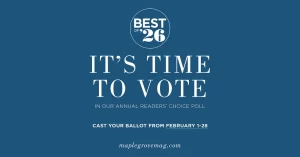The Achieving a Better Life Experience (ABLE) Act of 2014 is a tax benefit implemented by the IRS that allows states to offer a tax-advantaged savings account for eligible individuals with disabilities. This allows individuals, or anyone on their behalf, to contribute funds into a savings account without affecting their eligibility for means-tested public benefits like SSI and Medicaid (Known as “MA” or “Medical Assistance” in Minnesota).
Beginning January 1, 2026, the qualifications for individuals to open an ABLE account will change.
Currently, ABLE accounts may be opened by (or on behalf of) individuals whose disability began before the age of 26. Come 2026, that age will increase to 46.
Other Eligibility Requirements include either:
A) Receiving Supplemental Security Income (SSI) or Social Security Disability Insurance (SSDI) Benefits
OR
B) Having a licensed physician sign a document stating a diagnosis and that an individual has (a) “marked and severe” functional limitations(s) which began before the age of 26. (46 as of January 1, 2026).
Additional enrollment requirements vary by state. However, no matter where you reside, you can open an ABLE account in any state that accepts outside residents into their program. Funds in the account grow tax-free and can be used for a broad range of eligible expenses.
Without an ABLE account, individuals with disabilities would have to choose between saving money and risking losing their important public benefits on which they rely.
Planning and saving for the future is very important, especially when you or a loved one has a disability. Part of this planning may include strategies to ensure you, or your loved one, continues to qualify for programs like Medicaid. It can be difficult to understand what assets are “available” (count towards the maximum assets allowed to be eligible for benefits) or “excluded” – and there can be exceptions. Without careful planning, something as simple as a Transfer on Death Deed or financial gift can unexpectedly affect one’s eligibility for these programs.
Fortunately, tools like the ABLE Act programs and strategic planning can help prevent this problem.
We can help you make the most of the programs available to you and your family.
We are here to help you navigate protecting your assets, reducing them without penalties, and help with strategic planning to ensure continued eligibility and access.
Reach out to us today if you have any questions or concerns!






